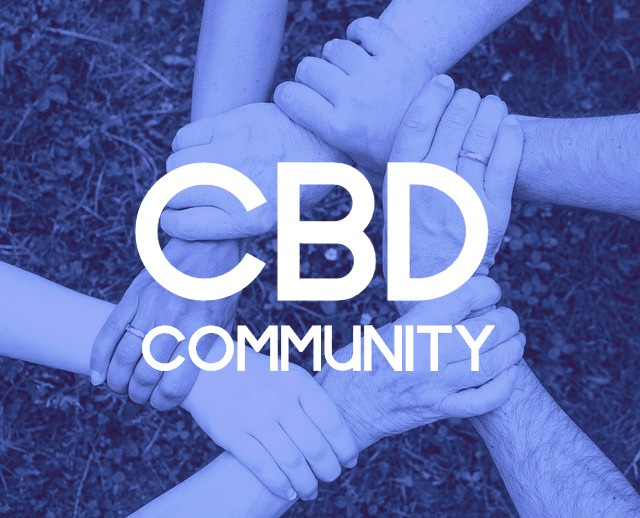Last updated on 12 November 2021
Seasonal Affective Disorder is also known as SAD.
According to the American Psychiatric Association, it is a form of depression when people undergo mood swings and low energy and experience symptoms similar to depression. The primary reason for such a condition is the lack of sunlight and predominantly occurs during fall or winter months.
It’s that time of the year again when 5:00 pm feels like 9:00 pm. In the northern hemisphere, we will begin to see fewer hours of daylight and in some countries further north, there will be no daylight at all.
The daily commute to work begins in darkness and the commute back home from the office is also dark. This lack of light affects the part of the brain that controls sleep, appetite, activity, sex drive, anxiety, and mood. Feelings of low energy, lethargy, experiencing extremities in behavior or habits, are symptoms of seasonal transition.
Such prolonged daily life routine has an immediate effect on one’s mental health and reflects as high peaks and valleys on moods. For example, loss of appetite, or a sudden craving for sugary snacks, difficulty to sleep, or oversleeping, low self-esteem or a sudden sense of overconfidence, etc
The term was first coined in 1984 by psychiatrist Norman Rosenthal.
Rosenthal first included the term ‘seasonal affective disorder’ in a paper he co-wrote following a move from the warm climate of Johannesburg in South Africa to the north-eastern US, with its more severe winters.
What Research Says
According to a large European study on depression1, SAD was found to be common throughout the European population and it appeared to be largely underdiagnosed and/or misdiagnosed. They also discovered that SAD is more common in women than in men. The onset of this depression is between the age of 18 and 30 years old. Some patients who are suffering from SAD may have stronger symptoms that may affect the quality of their life.
Related article: CBD for Depression
Some common symptoms of seasonal affective disorder (SAD)
- Seasonal suicidal thoughts,
- Insomnia
- Poor appetite.
- Over-sleeping- Since the body lacks sufficient exposure to sunlight, it produces an increased level of Melatonin (the sleep hormone)
- Vitamin D deficiency
- Loss of interest in many activities
- Isolation
Those who are diagnosed with seasonal affective disorder have the symptoms for major seasonal depression for at least two years, hence they would require a favorable support system to help them overcome this disorder.
SAD can be effectively treated in many ways. some of which are:
- Light therapy,
- Antidepressant medications,
- CBD products
- Talk therapy
- Combination of the above
While in most common cases, these symptoms tend to show improvements naturally ( without any external help) with the change in the season, some cases might require intense treatment.
Light therapy
A lightbox that emits bright light is used, for treatment, where the patient affected with the seasonal affective disorder is made to sit in front of the light for approximately 20 minutes or more per day for one or two weeks during the initial stages of treatment. This period is ample to show considerable improvements in the affected person’s condition.
Added to this, to evade the recurrence of the condition, treatment is continued to the end of winter.
Antidepressant medications
These are prescribed medications used to treat major conditions of depression, anxiety, chronic pain or sometimes addiction problems. However, consuming these could also cause several side effects such as weight gain, headaches, sexual dysfunction, etc or lacks evidence-based results, misuse, and the placebo effect.
CBD Products
Many studies support the fact that CBD may be helpful to address the symptoms of seasonal affective disorder. Insomnia and anxiety are the two major symptoms that can be treated using CBD. A 2010 study2 indicated the positive effect of CBD on social anxiety. Findings in 20143 indicated that CBD also has antidepressant properties.
The increasing awareness of the dangerous side effects of pharmaceutical medicines has shifted importance to more natural or ancient plant-based medication.
The growing number of research studies and experiments have already started to present encouraging results that CBD tends to show positive effects when it combines with the serotonin receptors in the brain. This CBD interacts with the endocannabinoid system and begins to respond to a series of body functions that improve the emotional state, thereby reciprocating on levels of anxiety or depression.
Including CBD in your food habits, every day throughout the winter months generally help relieve the symptoms. You can also use CBD for cooking and make your own CBD infused ingredients to use in your favorite recipes.
Some most common forms of CBD are:
- CBD oil
- CBD capsules
- CBD pastes
- CBD crystals
- CBD drops
- CBD food supplements
Talk Therapy
According to Larry Christensen, Ph.D., professor of psychology at the University of South Alabama, ”Talk therapy can give you the skills to help handle your depression, it’s a very empowering experience,” “This makes it effective over a long period of time.”
Cognitive-behavioral therapy (CBT) and interpersonal therapies are the two important and widely adopted methods for treating SAD.
CBT helps a patient to learn to observe the root cause of negative thoughts and its impact on anxiety or depression; and consciously practice to replace them with positive thoughts, behaviors or moods.
Interpersonal therapy centers around how to relate to others, observe or know about people who are successful despite a physical handicap, etc. This helps to improve the personal relationship and makes positive changes and immensely boosts positive feelings. Both of these therapies help treat depression.
Combination
A combination of all the above therapies may also be followed as is appropriate considering a patient’s condition or severity.
Conclusion
Therefore, any kind of mind-related or psychological disorders can be effectively treated with timely intervention, and care given to an affected person. Certain simple practices that the family people can inculcate in their lifestyles, by giving them an ear to listen, some quality time, seeking professional advice whenever necessary all of which can immensely support the reduction in cases.
References
- Michalak, Erin E., et al. “Seasonal affective disorder: prevalence, detection and current treatment in North Wales.” The British Journal of Psychiatry 179.1 (2001): 31-34. [↩]
- Crippa, José Alexandre S., et al. “Neural basis of anxiolytic effects of cannabidiol (CBD) in generalized social anxiety disorder: a preliminary report.” Journal of psychopharmacology 25.1 (2011): 121-130. [↩]
- R de Mello Schier, Alexandre, et al. “Antidepressant-like and anxiolytic-like effects of cannabidiol: a chemical compound of Cannabis sativa.” CNS & Neurological Disorders-Drug Targets (Formerly Current Drug Targets-CNS & Neurological Disorders) 13.6 (2014): 953-960. [↩]
Author
With close to two decades of successful stint in the Media industry, I felt I was surely missing a piece in my life puzzle. I took a break and set out to seek the purpose of my life. I travelled, lived out of a suitcase, let things flow into life without resisting, and after five challenging years, I found my rhythm. I love to write about Cannabis and Health and try my best to simplify esoteric concepts into simple ideas for life.







